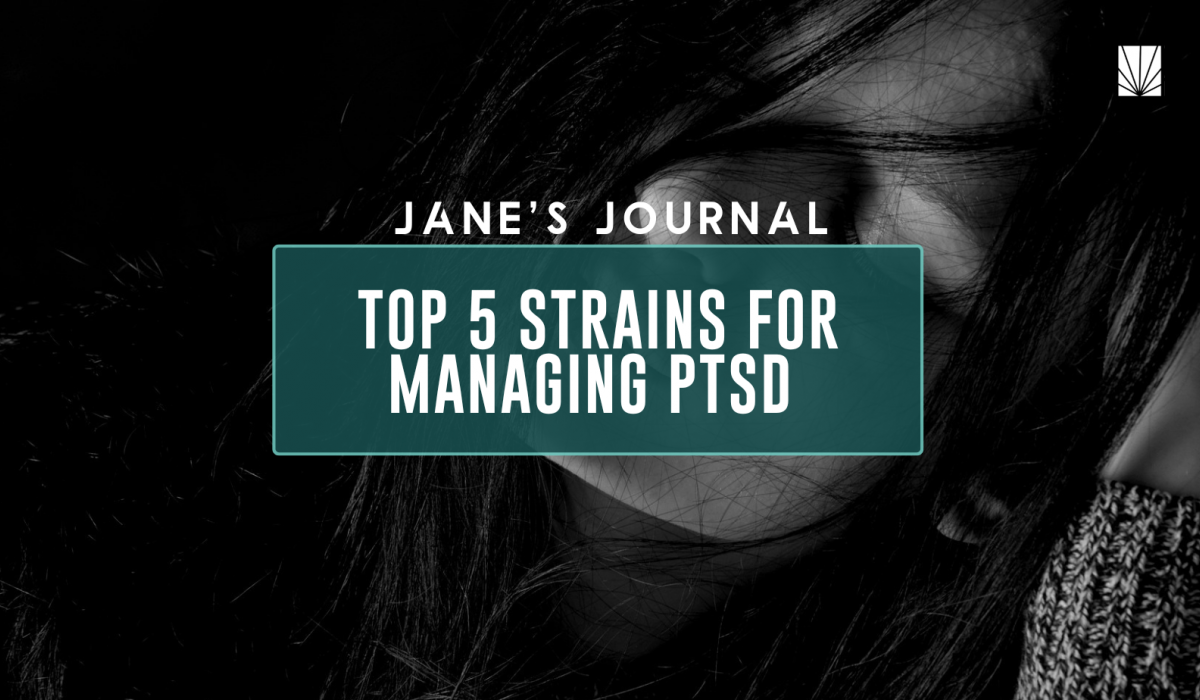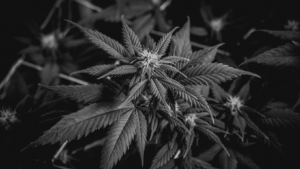
Top 5 Strains for Managing PTSD
If you use cannabis to manage symptoms of PTSD, the latest research backs you up. A 2022 study found that cannabis consumers were 2.57 times more likely to recover from PTSD than survivors who didn’t partake. But cannabis is a diverse plant species that can produce wide-ranging effects—some of which are a better fit for post-traumatic stress disorder than others.
The Entourage Effect and Post-Traumatic Stress Disorder (PTSD)
To understand why some cannabis strains are better for managing post-traumatic stress disorder (PTSD) than others, it helps to understand the entourage effect. The entourage effect refers to the synergy between cannabinoids like THC, CBD, CBG, and CBN with the terpenes commonly found in cannabis.
Terpenes are found in many plants, including citrus fruits, herbs and plant-based resins like frankincense and myrrh. They’re responsible for the zingy freshness of lemon zest or orange oil and they’re behind the relaxing scent of lavender. Terpenes also contribute to the wide range of scents cannabis strains present, from gassy to garlicky to floral, fruity and skunky.
Terpenes do more than just smell fresh, however. Studies show that terpenes interact with the same CB1 receptors in your body’s endocannabinoid system as cannabinoids themselves. Terpenes produce their own reactions in those receptors, but they also modulate the reactions produced by cannabinoids when consumed at the same time. That combination of responses is what’s called the entourage effect—the way that cannabinoids and terpenes work together like your favorite musical supergroup.
That’s why it’s as important to get familiar with the terpenes in your favorite strains for managing PTSD. Once you find a terpene profile that you like, it will be easier to find similar strains rather than relying on THC potency or cannabinoid percentages alone. Now that you know what differentiates cannabis strains beyond the indica and sativa categories, if you’re wondering what are the best cannabis strains for managing PTSD, these are five that fit the bill:

5 Cannabis Strains and Terpenes for Post-Traumatic Stress Disorder (PTSD)
- Grape Fritter. Leafly users rated Grape Fritter as one of their favorite strains for managing PTSD. A high-THC hybrid strain, Grape Fritter is a genetic cross from Grow Sciences that combines Grape Ape and Apple Fritter, before crossing that combination with Jet A. Grape Fritter is rich in β-caryophyllene (beta-caryophyllene), a terpene also found in black pepper and cloves.
In addition to creating a rich, spice scent β-caryophyllene is associated with relaxation—possibly due to anti-inflammatory properties. Anecdotal reports suggest β-caryophyllene reduces feelings of anxiety in humans. This terpenes has also shown some promise for treating substance use disorders in rodent studies. Grape Fritter is also high in myrcene, an extremely common cannabis terpene that may be linked to the bodily relaxation associated with a cannabis high.
- Northern Lights. Northern Lights is a popular choice for medical cannabis patients addressing their mental health. It’s a cross between two landrace strains, Afghani and Thai—landrace strains are ancient cannabis varieties native to a particular geographic region that have maintained their classic genetic profile over millennia. Afghani is a pure Indica strain high in terpinolene, a rare terpene that may play a chemical role as a sedative. Thai, on the other hand is a pure sativa high in β-caryophyllene. When bred together, however, Northern Lights is actually highest in myrcene.
This hybrid strain tends to have a higher THC percentage, too, contributing to the strain’s pronounced psychoactive effects. Anecdotal reports from medical cannabis patients suggest that Northern Lights tends to produce feelings of euphoria and relaxation that ease common PTSD symptoms like anxiety, depression and physical tension.
- Jack Herer. Named for the renowned cannabis activist, Jack Herer is a legendary strain for a reason. A sativa-dominant hybrid developed by the great, long-time breeder Sensi Seeds, Jack Herer’s exact genetic makeup is a proprietary secret. It’s generally thought to be a cross between Northern Lights #5, Shiva Skunk and Haze, Jack Herer is well-liked because it produces both cerebral psychoactive effects as well as a body high.
Originally developed in the Netherlands as an award-winning medical-grade strain, Jack Herer has long been used to manage anxiety, depression, and chronic pain—all of which may be experienced by those living with PTSD. Although it’s widely considered to be relaxing, Jack Herer isn’t thought to be particularly sedative, but rather creatively and energetically uplifting.
Like Afghani, Jack Herer is typically high in terpinolene as well as the terpenes β-caryophyllene and pinene. Studies suggest that the pinene terpene, as well as another common to cannabis called linalool, can exert some influence on GABA, glutamate, serotonin and dopamine pathways in the brain. Those are all “feel-good” chemicals in the brain that can play a powerful role in mood, executive function, impulse control and substance use—particularly for those living with conditions like post-traumatic stress disorder.
- Doc Holiday. Another strain with a famous name, Doc Holiday is an appropriate reference for a medical cannabis strain—the dentist and gunfighter originally traveled to the American Southwest in search of a cure for tuberculosis. While cannabis can’t treat a chronic bacterial lung infection, the Doc Holiday strain does have many of the key cannabinoids and terpenes usually associated with managing PTSD symptoms.
Created by Maryland cannabis breeder Greenpoint Seeds, Doc Holliday is a higher-THC cross of Kurple Fantasy (92 OG Kush x Old Man Purps) and Stardawg. Doc Holiday is rich in limonene, a terpene that some studies suggest could reduce stress and elevate mood by increasing serotonin in specific areas of the brain. The other two most prevalent terpenes in Doc Holiday are β-caryophyllene and myrcene.
- ACDC. Unlike the other strains on this list, ACDC is higher in CBD than it is in THC—perfect for anyone who needs manage PTSD symptoms while staying focused and alert on work or parenting. The high CBD percentage is also a great fit for people who experience paranoia as part of their PTSD symptoms, and might want fewer psychoactive effects from their high.
ACDC is derived from another CBD-dominant strain, Cannatonic, which true to the name is associated with physical and mental relaxation. High in myrcene, pinene and β-caryophyllene, it should be no surprise that even without high percentages of THC, consumers often find ACDC to be a powerful stress reducer that can reduce muscular tension as well as anxiety.

What Cannabis Strain Is Right for Me?
Of course, there are many cannabis strains that people with PTSD have found helpful for managing common symptoms like depression, anxiety, irritability, reactivity, trouble sleeping and concentrating, hyper-vigilance, feelings of guilt or shame, and even chronic pain.
It may take some experimentation and research to find your best-fit cannabis strain for PTSD. That said, a great place to start is with the five on this list. From there, you can try other cannabis strains high in β-caryophyllene, pinene, limonene, terpinolene, and myrcene. Make a note of any strains that produce a particularly effective, functional entourage effect for your unique endocannabinoid system. As you explore medical cannabis for PTSD and the wide world of cannabis genetics, you might find even more great strains for managing PTSD.
ACDC, anxiety, Cannabis Strain, CBD, CBG, CBN, chronic pain, CPTSD, depression, Doc Holiday, elevate mood, Entourage Effect, feelings of guilt, feelings of shame, Grape Fritter, hyper-vigilance, irritability, Jack Herer, Jane's Journal, limonene, myrcene, Northern Lights, physical tension, pinene, PTSD, reactivity, reduce stress, Terpenes, terpinolene, THC, Top 5 Strains for Managing PTSD, trouble concentrating, trouble sleeping
